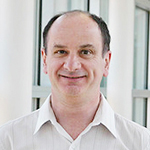The Texas Higher Education Coordinating Board has approved the creation of a master's degree in actuarial science at The University of Texas at Dallas, the first such degree program to be offered in Texas.
UT Dallas’ Department of Mathematical Sciences, which currently offers a bachelor's degree in actuarial science, will begin accepting students to its master’s program in September.
Actuary Careers
Job description:
Uses skills in statistics, probability and mathematics to address business problems involving the cost of possible future events.
UT Dallas degrees offered:
• Bachelor of Science in Actuarial Science
• Master of Science in Actuarial Science
Starting salary range:
$44,000 to $60,000
Median Pay (in 2010):
$87,650
Employment Outlook:
Excellent
CareerCast.com, a job information website, lists actuary as No. 2 on its “best jobs” ranking for 2012. According to the DW Simpson Actuarial Salary Survey, starting salaries for individuals with minimum experience range between $44,000 and $60,000, depending on the type of employment and the number of professional qualifying exams passed.
College graduates who major in actuarial science can expect to be in demand in today’s workforce – the unemployment rate among these majors is less than 5 percent, according to a 2011 report from Georgetown University’s Center on Education and the Workforce.
“This new program was needed to meet the demands of our students as well as the needs of the job market,” said Dr. Natalia Humphreys, clinical associate professor of mathematical sciences and associate head of UT Dallas’ actuarial program.
Actuaries use skills in statistics, probability, mathematics, finance, management, economics and government policy to define, analyze and solve business problems involving the cost of possible future events. The insurance industry is the largest employer of actuaries, but they also work in financial institutions, consulting firms, government agencies, universities, accounting firms and labor unions. Emerging markets for actuaries include banking, retirement systems, mortgage companies, and health care and public health industries.

Dr. Sam Efromovich, head of the program, says Dallas area's need for actuaries has kept pace with demand nationwide.
The Bureau of Labor Statistics expects employment growth for actuaries to jump 27 percent between 2010 and 2020. The bureau links that growth not only to changes in health care laws, but also to an increase in demand for professionals to evaluate the risks posed to property by the effects of climate change.
“In the Dallas/Fort Worth region, demand for actuarial professionals reflects national trends,” said Dr. Sam Efromovich, professor of mathematical sciences and head of UT Dallas’ actuarial science program.
In Fall 2009, the math department started a bachelor’s degree program in actuarial science that now has grown to enroll 60 students, several of whom have expressed an interest in obtaining master’s degrees, Humphreys said. Students with undergraduate degrees in different disciplines, as well as professionals currently in the workplace, also are potential candidates for advanced degrees.
Actuaries entering the workforce must obtain professional accreditation by taking several qualifying exams, depending on the job. Humphreys said the undergraduate degree at UT Dallas offers complete preparation for the first two exams, with partial preparation for the other three. The master’s degree will offer complete preparation for all five preliminary actuarial exams.
In the last several years, a number of UT Dallas undergraduates have successfully passed preliminary actuarial exams and have landed actuarial internships.
“The Actuarial Science Program recently celebrated its first graduate obtaining the designation of Associate in the Society of Actuaries, which is an important achievement for any actuarial student,” Humphreys said. “This graduate is currently an actuarial associate at Blue Cross/Blue Shield of Texas.”
Graduates of the master’s program will be prepared to work as senior actuaries in traditional and emerging markets, Humphreys added.
“Students will obtain a much deeper knowledge of probability, statistics and decision theory that will provide exceptional training for employment, likely in the companies of their choice.”
Dr. Natalia Humphreys,
associate head
of actuarial program
“Students will obtain a much deeper knowledge of probability, statistics and decision theory that will provide exceptional training for employment, likely in the companies of their choice,” she said.
UT Dallas’ Department of Mathematical Sciences is uniquely positioned to offer an advanced actuarial science degree, said Dr. Matthew Goeckner, professor and head of the department. He noted that Efromovich is a fellow of the Institute of Mathematical Sciences and of the American Statistical Society, and Humphreys is a fellow of the Society of Actuaries. Both conduct research funded by the Actuarial Research Foundation. Other members of the mathematics department, as well as faculty specializing in economics and finance, contribute to the curriculum as well.
“Actuarial science is primarily based on classical mathematics, probability and statistics, and our department is known for its academic and teaching strength in these areas,” Goeckner said. “To match the tremendous growth of our Actuarial Science Program, we plan to add an additional faculty member who has broad actuarial experience. With this new program we will continue to provide our graduates with training in a wide spectrum of actuarial applications and educate future leaders of the actuarial industry.”